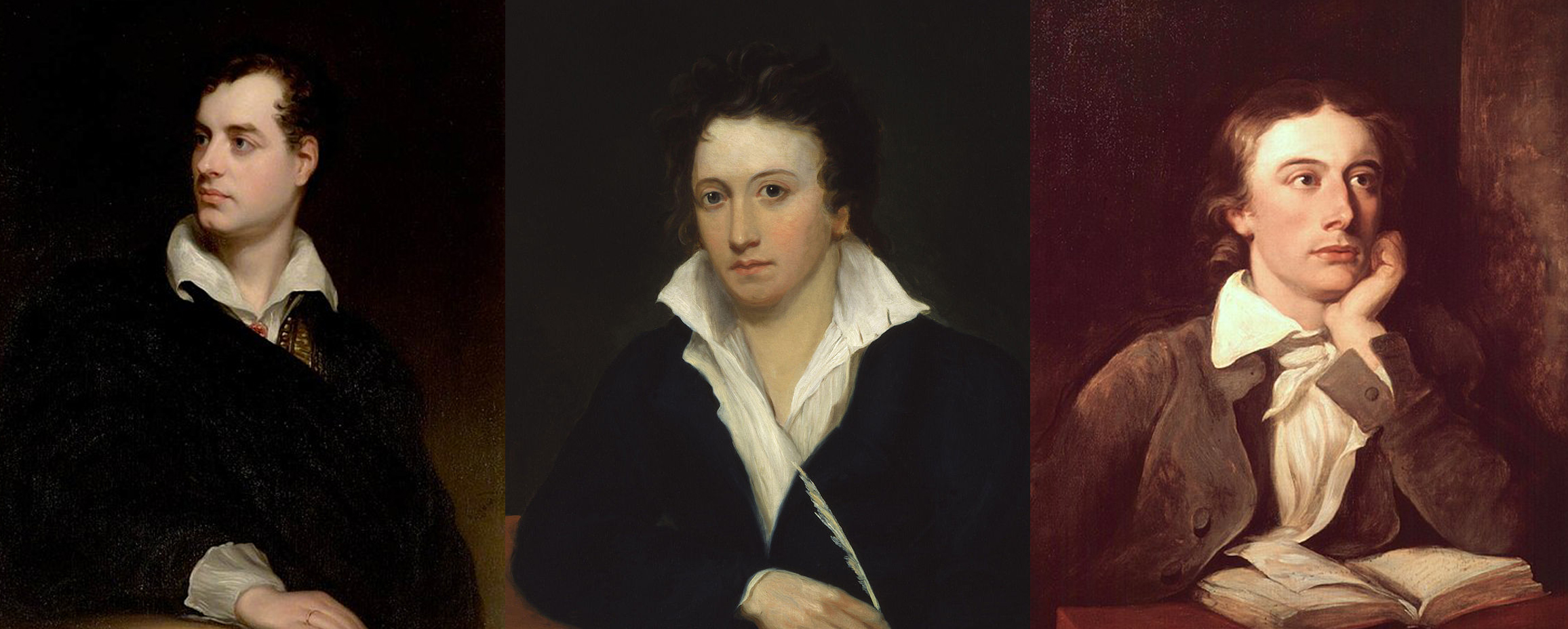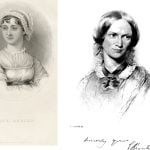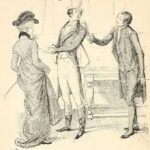
Interviewer: Good evening to our dear audience. Welcome to a new episode of this show that we have called “What do you think about…?”. On this evening we have as guests three outstanding poets of English literature. Today we’ll talk about poetry as a literary genre, and passionate love as an inspiring muse. Ladies and gentleman, let’s give a warm greeting to Lord Byron, Percy Shelley and John Keats. Gentlemen, I thank you for accepting our invitation.
Lord Byron: It’s our pleasure. However, I must say I had no other activity to attend. You surely already knew that I try to go to as many gatherings as possible. “If I could always read I should never feel the want of company.”
Interviewer: Dear Byron, I have read an anthology of poems published under your authorship. It must be an honor to be a prolific poet like you.
Lord Byron: “Tis pleasant, sure, to see one’s name in print. A book’s a book, although there’s nothing in ‘t.”
John Keats: If nothing else, it’s an artistic creation. “A thing of beauty is a joy for ever: Its loveliness increases; it will never pass into nothingness; but still will keep a bower quiet for us, and a sleep full of sweet dreams, and health, and quiet breathing.” (the interviewer tears up while listening to Keats’s verses).
Percy Shelley: Oh, absolutely! This reminds me of a funny anecdote. Byron, are you still in touch with your doctor, John Polidori? He wrote a short novel, remember?
Lord Byron: Of course! Nevertheless, Polidori’s writings were genuinely superlative, and it must be said that my name was not on the cover of the book. Still, its authorship was attributed to me. Poor Polidori! I never contradicted those who thought I wrote that piece of literature. Instead, I thanked them for their compliments.
Percy Shelly: Oh! I know you did, my dear friend!
Interviewer: Gentlemen, let’s begin the interview. Mr. Shelley, could you describe what love is?
Percy Shelley (emphasis added, standing on his chair): “What is love? Do you ask the one who lives what life is? Do you ask the one who prays who is God?!”
Interviewer (astonished): Mr. Shelley, be careful, you could fall!
Lord Byron: Oh! Don’t worry, I assure you that our friend will not suffer any scratches. Isn’t that right, dear Percy?
Percy Shelley (absorbed in his own words): “… Do you ask the one who lives what life is?” And since we’re talking about this, “what is life? Thoughts and feelings arise, with or without our will, and we employ words to express them. We are born, and our birth is unremembered and our infancy remembered but in fragments. We live on, and in living we lose the apprehension of life. How vain is it to think that words can penetrate the mystery of our being.” (the interviewer sheds tears again).
Lord Byron (clapping): Magnificent!
Percy Shelley (sitting in his seat): Thank you, my friend. Still, I would like to answer our interviewer’s previous question. Darling, I must say I consider “love to be a spirit within two forms.”
John Keats: “…two souls with but a single thought, two hearts that beat as one!”
Interviewer: Beautiful words, gentlemen. I thank you, very much. Lord Byron, how would you define love?
Lord Byron: I wouldn’t define it at all. It’s not possible to do so. However, I can tell you that I treasure my youthful loves with nostalgia.
Interviewer: Is that so?
Lord Byron: Certainly. You see, “when age cools the blood and pleasures are a thing of the past, the most cherished memory remains the last, and our sweetest evocation, that of the first kiss.”
Interviewer (pulling a handkerchief from her pocket to wipe her tears): I’m touched! Poetry! Words of poetry!
John Keats: They certainly are! How could be otherwise? “If poetry comes not as naturally as the leaves to a tree, it had better not come at all.”
Percy Shelley: Your right, dear John, for “a poet is a nightingale who sits in darkness and sings to cheer its own solitude with sweet sounds”.
Interviewer (still moved by the scene): Mr. Keats, you have already said a few words about love, could you add something else?
John Keats: Oh! If only I could! I have written quite a few verses on this subject, and yet, on many occasions, when writing them, “I was too much in solitude, and consequently was obliged to be in continual burning of thought, as an only resource.”
Interviewer: It’s that so?
Lord Byron (coughing): A curious circumstance! Isn’t that so, dear John? That never happened to me!
Interviewer: Really? I wouldn’t have believed it!
John Keats (glaring at Byron while he speaks): Darling, “you speak of Lord Byron and me; there is this great difference between us. He describes what he sees while I describe what I imagine. Mine is the hardest task.”
Interviewer: Do you have anything to say, Lord Byron?
Lord Byron: Oh! Forget it! Dear, let’s continue with the topic we were talking about. Listen to me, darling. A man will never love like a woman does, no matter how much in love he is.
Interviewer: What do you mean?
Lord Byron: “Man’s love is of man’s life a part; it is a woman’s whole existence.”
Interviewer: I see.
Lord Byron: On the other hand, “in her first passion, a woman loves her lover, in all the others all she loves is love.”
Percy Shelley: Tell me about it, my friend!
Lord Byron: Still, “love will find a way through paths where wolves fear to prey”.
Interviewer: What do you think about marriage, Lord Byron?
Lord Byron: “Marriage is to love what vinegar is to wine. Time makes it lose its first taste.”
Interviewer: What do you think in this regard, Mr. Shelley?
Percy Shelley: It’s a calamity!
Lord Byron: Of course, especially for those who become friends with that wretch who has decided to join in marriage with his beloved. You already know what I’m talking about! “Never advise a man to mistrust a woman to whom he is already married. It’s too late for him.”
Percy Shelley: However, despite everything, I would go so far as to say that there is still hope.
Lord Byron: Do you think so, dear Percy?
Percy Byron: Dear friend, I’m surprised you ask me that. Of course I am convinced of it. Could it be otherwise? I have often thought about it, and life itself has shown me that I am not wrong. Dear Byron, “if winter comes, can spring be far behind?”
Lord Byron: I must say you are not mistaken about that. However, such happiness depends on the married man having a mistress.
John Keats: How romantic of you, Byron!
Lord Byron: You make me laugh, my friend! Perhaps you are right. “I doubt sometimes whether a quiet and unagitated life would have suited me, yet I sometimes long for it.”
Percy Shelley: Do you have any regrets?
Lord Byron: Of course not! If I had to do it all over again, I wouldn’t change a thing. Gentlemen! We’ve been chitchatting too much! Do me the honor of buying you a drink. The café on the corner, unfortunately, has a cellar that lacks everything that I would like it to have, so we will have to settle for what they have to offer us.
Percy Shelley: My dear friend, you are always indulging in the pleasure of drinking. Dear John, will you join us?
John Keats (standing up): Do I have any other option?
Interviewer (desperately): Gentlemen, where are you going? We haven’t finished recording the show yet…
Lord Byron: Oh, don’t worry! We’ll be back before you’re done.
Interviewer (anguished): Wait… Gentlemen… I beg you.. Please, don’t go..
Lord Byron, Percy Shelley and John Keats withdraw from the study. The interviewer buries her face on her lap. The light in the study goes out. The cameramen begin to disassemble their equipment. In the background, cheerful voices toasting, and the tinkle of glass goblets when they clash can be heard. Meanwhile, a moan stands out among that uproar; a faint but heartbreaking sob that is confused with the words “Gentlemen… come back, please”.
END OF TRANSMISSION


